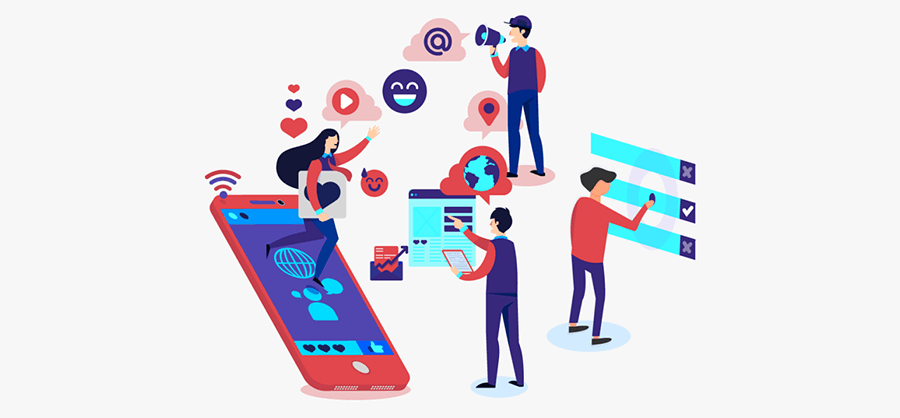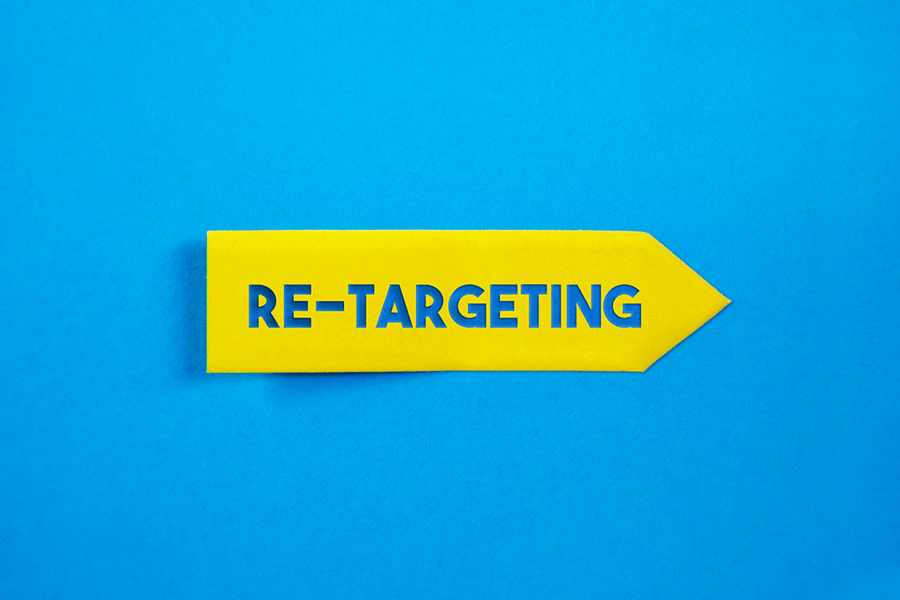
When it comes to internal vs. external marketing, people usually are talking about one of two things. First, they are comparing how we market to our customers to how we can use these same skills with our staff. Secondly, people also discuss the benefits of using an in-house marketing team versus outsourcing marketing to an external marketing agency. All these areas overlap, so we’re going to address them both here.
The crux of the debate regarding internal vs. external marketing comes down to a business’s size and its goals. It’s up to each firm to decide what is most cost-effective and useful for its needs. So that you can make informed decisions, here is the lowdown on marketing for an internal audience vs. an external audience, as well as the advantages and disadvantages of having an external agency handle your marketing.
Understanding Your Audience: A Deep Dive into Internal vs. External Marketing
When it comes to marketing, the spotlight often shines on external strategies, leaving internal marketing in the shadows. However, both are crucial for the success of your business. Let’s break down the differences and significance of internal vs. external marketing, starting with the more commonly understood external marketing.
What Is External Marketing?
The Basics
External marketing is the art and science of reaching out to potential customers beyond the walls of your organization. This involves various channels like social media, email marketing, and traditional print ads.
The Goals
The primary aim is to attract, engage, and convert potential customers. By effectively communicating what your business offers, external marketing educates potential customers and builds brand value.
The Impact
External marketing is all about customer relationships. It helps you understand your customers’ needs and preferences, guiding them through the sales funnel with the ultimate goal of turning them into loyal, repeat customers.
What Is Internal Marketing?
The Basics
While external marketing targets potential customers, internal marketing focuses on an audience that’s already invested in your business—your employees.
The Goals
Unlike external marketing, internal marketing isn’t about selling products or services to your staff. It’s about fostering a positive work environment, helping employees build fulfilling careers, and equipping them with the tools they need to excel. This, in turn, benefits the overall company.
The Impact
Internal marketing starts from a position of existing relationships with your employees. It aims to strengthen these bonds, creating a more cohesive and motivated workforce. When your team is engaged and aligned with your company’s goals, it naturally leads to better performance and, ultimately, customer satisfaction.
Why Both Matter: Internal vs. External Marketing
Symbiotic Relationship
While they target different audiences, internal and external marketing are two sides of the same coin. A motivated, well-informed internal team is more likely to execute successful external marketing campaigns.
Brand Consistency
Your employees are your brand ambassadors. Through effective internal marketing, you ensure that the brand message conveyed to the external world is consistent and compelling.
Business Growth
Effective external marketing can bring in customers, but it’s the internal marketing strategies that often keep them. Happy employees are more likely to provide the kind of service that turns one-time buyers into loyal customers.
In summary, internal vs. external marketing are not mutually exclusive but complementary strategies. Both are essential for building a strong brand and a successful business. At David Taylor Digital, we understand the nuances of both and can help you create a balanced marketing approach that serves your entire audience—inside and out.
Internal vs. External Marketing: Navigating Media and Platforms
When it comes to the media and platforms used in internal vs. external marketing, you’ll find more common ground than you might expect. Both types of marketing leverage similar tools, but apply them in unique ways to achieve different objectives.
Let’s delve into how these platforms can be utilized effectively for both internal and external marketing.
Social Media: A Double-Edged Sword
External Marketing
In the realm of external marketing, social media platforms like Facebook and Instagram are the go-to channels for reaching a broad audience. These platforms allow businesses to showcase their products, share success stories, and engage with potential customers.
Internal Marketing
Interestingly, these same platforms can be equally effective for internal marketing. Tools like Workplace by Facebook or Slack channels can foster a sense of community among employees. They serve as platforms where you can share company news, celebrate achievements, and even collaborate on projects.
Strengthening Existing Relationships
If you’ve been finding it challenging to connect with potential clients, internal marketing offers a different kind of opportunity. Instead of attracting new audiences, you can focus on strengthening the relationships you already have within your organization. Platforms like Instagram and Pinterest can be used creatively to engage your team and reinforce your company’s values.
The Power of a Strong Culture
A robust and supportive company culture is invaluable. It can reduce employee turnover, spur creativity, and drive innovation. Internal marketing ensures that everyone is aligned with the company’s ethos and objectives.
Navigating Business Changes
Whether your business needs to pivot its strategy or is facing challenges like economic downturns or increased competition, internal marketing tools are your allies. They offer a direct line of communication with your workforce, allowing you to disseminate important updates and gather valuable feedback.
Beyond Social Media: The Role of Newsletters
While social media is interactive and immediate, don’t underestimate the power of a well-crafted newsletter. Just as email marketing is a cornerstone of external marketing, internal newsletters can keep your team informed and engaged. It’s a tangible way to show that you value your employees’ contributions.
In summary, the media and platforms you choose play a crucial role in both internal and external marketing. While the objectives may differ, the tools often overlap. By understanding how to leverage these platforms effectively, you can create a holistic marketing strategy that attracts customers and turns your employees into brand ambassadors.
Internal vs. External Marketing: Setting the Right Goals
When it comes to internal vs. external marketing, understanding the distinct goals for each is crucial for crafting effective strategies. While the tools and techniques may overlap, the objectives are fundamentally different. Let’s delve into how to set the right goals for each type of marketing.
External Marketing: Customer-Centric Goals
Boosting Engagement and Sales
In external marketing, the focus is regularly on leveraging buyer enablement to guide potential customers through the sales funnel. This could involve offering discounts, running promotions, or highlighting the unique benefits of your products or services.
Building Brand Awareness
Another key objective is to increase brand visibility and awareness. This is where you aim to make your brand the first that comes to mind when customers think of a particular product or service.
Internal Marketing: Employee-Centric Goals
Recognizing and Rewarding Talent
In contrast, internal marketing aims to boost employee morale and productivity. One way to achieve this is by recognizing individual achievements, such as naming an “Employee of the Month” or rewarding outstanding contributions with tangible incentives like paid time off or gift hampers.
Fostering Team Collaboration
It’s also essential to promote a culture of collaboration rather than competition among employees. This can be done by rewarding teams collectively for individual performances, or by offering company-wide incentives that highlight the achievements of one or more team members.
Balancing Individual and Collective Goals
The trick is to create a win-win culture where everyone understands that contributing more to the business benefits all. This fosters a sense of community and ensures that internal competition doesn’t become detrimental to the team’s overall performance.
Consistency is Key
Maintaining a consistent internal marketing strategy can help unify a diverse workforce. If your employees already feel a sense of community, targeted internal marketing can deepen these bonds. Always remember to listen to your employees’ needs and preferences, just as you would focus on meeting customer needs in external marketing.
Take Cues from Your Team
When setting goals for your internal marketing strategy, it’s crucial to take cues from your team. Understand what motivates them and tailor your incentives and rewards to meet these needs. This ensures that your internal marketing efforts are as effective as possible, benefiting both your employees and your business as a whole.
By understanding the unique goals of internal vs. external marketing, you can craft strategies that are not only effective but also synergistic. The key is to align these strategies with the overarching objectives of your business, ensuring a cohesive approach to building both customer and employee relationships.
Internal vs. External Marketing: The Role in Acquiring and Retaining Talent
In today’s competitive job market, internal marketing is no longer a luxury—it’s a necessity. Especially with millennials and Gen Z entering the workforce, factors like work-life balance, job satisfaction, and alignment with company values are becoming increasingly important. Let’s explore how internal vs external marketing plays a pivotal role in not just acquiring but also retaining top talent.
Attracting the Right Talent Through Internal Marketing
Building a Strong Employer Brand
Companies like Google and Apple are not just known for their products but also for their work culture. They’ve used internal marketing to build an employer brand that resonates with their commitment to their workers, creativity, and individual contributions. Similarly, you can use internal marketing to showcase your company’s values, culture, and benefits, attracting candidates who already align with your ethos.
Leveraging Employee Advocacy
Your current employees are your best brand ambassadors. Word of mouth is incredibly powerful, and happy employees will naturally share their positive experiences, acting as organic promoters for your brand. This enhances your external marketing efforts and attracts like-minded talent to your organization.
Retaining Talent Through Internal Marketing
Understanding Employee Needs
Internal marketing is not just about communication; it’s also about listening. Utilize internal channels like intranet forums, surveys, or even casual coffee chats to understand what your employees value the most. This could range from flexible work hours to career development programs.
Employee Engagement and Recognition
Recognizing and rewarding your employees’ hard work is a cornerstone of effective internal marketing. Whether it’s through an employee recognition program or more personalized rewards, acknowledging their efforts can go a long way in building a loyal and satisfied workforce.
Open Channels for Feedback
Internal marketing also provides a platform for open dialogue. Encourage employees to share their ideas, feedback, or even grievances. This fosters a culture of transparency and provides valuable insights that can be used to improve various aspects of your business.
The Synergy Between Internal and External Marketing
Interestingly, a strong internal marketing strategy can also bolster your external marketing efforts. Satisfied employees are more likely to become advocates for your brand, sharing their positive experiences and thereby enhancing your company’s reputation. This creates a virtuous cycle where internal and external marketing efforts support and amplify each other.
By investing in a robust internal marketing strategy, you’re not just building a happier workforce; you’re also creating a stronger, more appealing brand. And in today’s competitive landscape, that’s not just good HR—it’s good business.
Internal vs. External Marketing For Small Businesses: Crafting a Cohesive Strategy
In the bustling world of small businesses, the spotlight often shines on external marketing. However, internal marketing—targeting your employees and stakeholders—is equally crucial for long-term success. Let’s delve into how a well-rounded strategy that encompasses both internal and external marketing can be a game-changer for your small business.
Crafting an Effective Internal Marketing Strategy
Assess Your Current Environment
Before diving into any marketing strategy, take stock of your current situation. Evaluate your company culture, the diversity of your team, and the resources at your disposal. This initial assessment will serve as the foundation for your internal marketing efforts.
Understand Employee Needs
The key to a successful internal marketing strategy is understanding what motivates your employees. Conduct surveys or hold focus groups to gather insights into their needs and aspirations. This will help you tailor your internal marketing initiatives to boost morale and productivity.
Foster a Positive Work Culture
Creating a positive work environment goes beyond just offering perks. Encourage your team to engage in community service or participate in charity events. This enriches your company culture and strengthens your brand image from the inside out.
Measure, Analyze, Adapt
No strategy is complete without metrics. Use KPIs to measure the effectiveness of your internal marketing initiatives. If the numbers aren’t adding up, don’t hesitate to pivot your strategy.
Navigating the Maze of External Marketing Strategy
Define Your Objectives
The first step in crafting an external marketing strategy is to outline your goals. Whether it’s building a robust social media presence or driving more traffic to your website, having clear objectives will guide your efforts.
Know Your Audience
Identifying your target audience is crucial. Understand their demographics, preferences, and the channels they frequent. This will enable you to tailor your marketing messages for maximum impact.
Competitive Analysis
A thorough analysis of your competitors can offer invaluable insights. Study their marketing channels, messaging, and customer engagement strategies. This will help you identify gaps in the market and opportunities for differentiation.
Choose the Right Channels
Selecting the appropriate marketing channels is vital. Your choices may range from SEO and social media marketing to email campaigns and paid advertising. The key is to choose channels that align with your business goals and audience preferences.
Test and Iterate
Marketing is an ever-evolving field. Don’t hesitate to experiment with different channels and strategies. Start small, measure the results, and refine your approach based on what you learn.
The Synergy of Internal and External Marketing
When internal and external marketing strategies are aligned, the impact can be exponential. A motivated workforce will naturally become brand ambassadors, enhancing your external marketing efforts. Conversely, a strong external brand image can boost employee pride and satisfaction, creating a virtuous cycle that benefits your business on multiple fronts.
To sum it up, internal vs. external marketing shouldn’t be an either-or decision. Both are integral to the growth and sustainability of your small business. By adopting a holistic approach that leverages the strengths of both internal and external marketing, your small business will not only survive but thrive in today’s competitive landscape.
Who Does The Marketing?
Internal vs. External Marketing Teams: A Closer Look
Navigating the realm of marketing, especially in the dichotomy of internal vs. external marketing, requires a keen understanding of who’s at the helm of your marketing initiatives.
As a small business, this bifurcation raises the pivotal question: should you build an in-house marketing team or collaborate with an external marketing agency?
Marketing, irrespective of its internal or external nature, necessitates meticulous planning and relentless effort. While most businesses have a laser focus on external marketing, embracing both realms necessitates a more profound understanding of the merits and demerits of an in-house team versus an agency partnership.
Time Efficiency
Embarking on a partnership with an external marketing agency may initially feel like a venture into the unknown, as the agency acquaints itself with your business ethos and objectives.
However, the time saved eventually is significant. Particularly when you, or a member of your team, are juggling multiple hats to keep the marketing wheel turning, delegating this task to a specialized agency can reclaim a substantial amount of your time, which in turn, can be a financial boon.
Cost Implication
Cost-efficiency is often a highlight when discussing external marketing agencies. Unlike in-house teams that come with the added expenses of benefits, holidays, and other incentives atop their salaries, agencies are a more budget-friendly route.
Furthermore, the overhead costs of training or procuring marketing software for an in-house team add up, while an external agency brings along a suite of fully trained experts equipped with the necessary tools, sans any additional cost.
A Fresh Perspective
The intimate understanding an in-house team has of your business and market is irreplaceable. However, the infusion of fresh, unbiased insights from a marketing maestro who has woven success stories across various industries can be a game-changer. This external perspective can unearth innovative strategies, setting your brand apart in a crowded marketplace.
Navigating The Learning Curve
The learning curve is twofold. Small businesses often find themselves in a quandary due to limited resources to onboard specialist marketers. This void is usually filled by an existing team member, which can be a taxing endeavor, leading to subpar results. Conversely, while an external marketing team brings expertise and dedicated focus to the table, the initial phase may entail a learning curve as they grasp the unique nuances of your business.
Unwavering Dedication
The exclusivity of dedication an internal marketing team offers is unparalleled, as they breathe your brand, day in and day out. Although many external marketing agencies echo their commitment to client success, the reality of divided attention across multiple clients can potentially dilute the level of dedication.
Marketing isn’t a one-and-done endeavor; it demands an unyielding dedication, strategic foresight, and continuous effort. The allure of external marketing is palpable, with a plethora of known benefits. However, the essence of internal marketing—fostering a robust company culture and nurturing your staff, the backbone of your enterprise—shouldn’t be overshadowed.
Navigating Your Marketing Journey: A Conclusion
The exploration into the realms of internal vs. external marketing unveils a spectrum of considerations that every small business owner must traverse. As you stand at the crossroads, the direction you choose will significantly impact your business’s narrative moving forward. Engaging an external marketing agency can indeed be a judicious move, provided it’s preceded by meticulous due diligence. It’s pivotal to navigate through testimonials and online reviews to ensure that the agency’s ethos resonates with your brand, and their expertise aligns with your vision.
On the flip side, nurturing an internal marketing team could be the catalyst in building a resonant brand culture, fostering a deeper connection with both your clientele and your workforce. The discourse of internal vs. external marketing is not merely a black or white decision; it’s a nuanced journey that requires a balanced assessment of your financial bandwidth, time resources, and the level of expertise necessitated.
As you ponder on this critical juncture, remember, the essence of marketing transcends the boundaries of internal and external paradigms. It’s about creating a narrative that not only resonates with your audience but also echoes the core values and vision of your brand.
At David Taylor Digital, we are poised to be your compass in this journey. Our suite of marketing services is tailored to meet the unique needs of small businesses, ensuring a synergistic alignment with your objectives, whether you’re looking to bolster your internal marketing strategies or seeking an external marketing partnership.
We invite you to connect with us, and let’s embark on a collaborative voyage towards achieving your marketing goals, navigating the nuances of internal vs. external marketing, and propelling your brand to new horizons.


